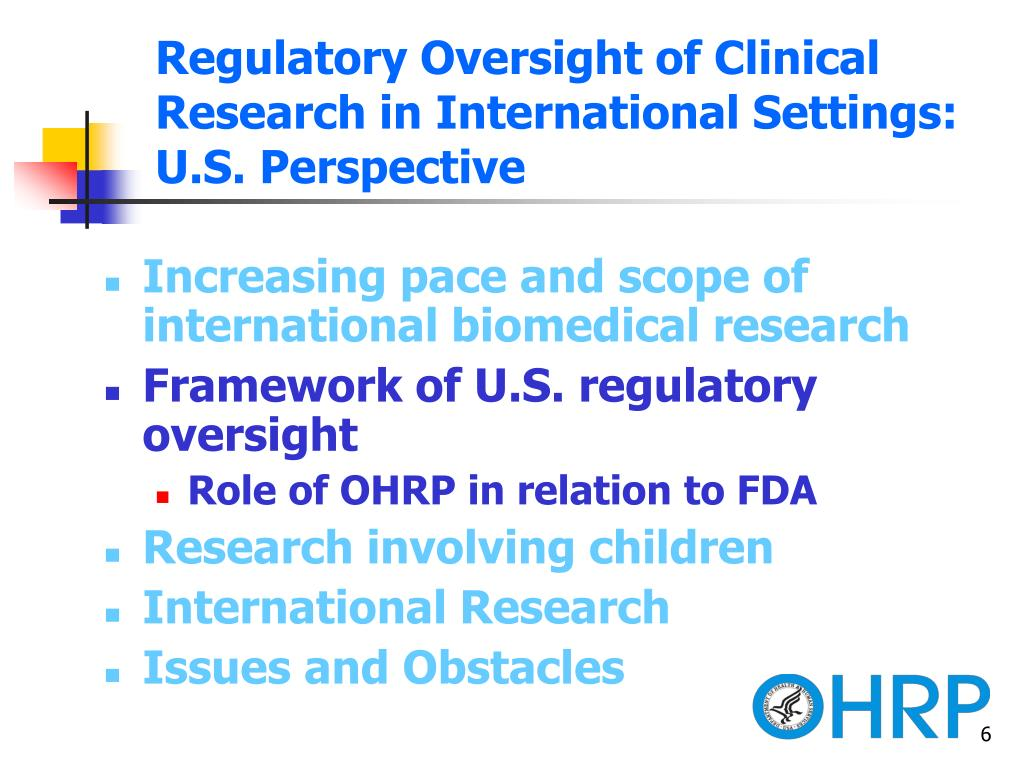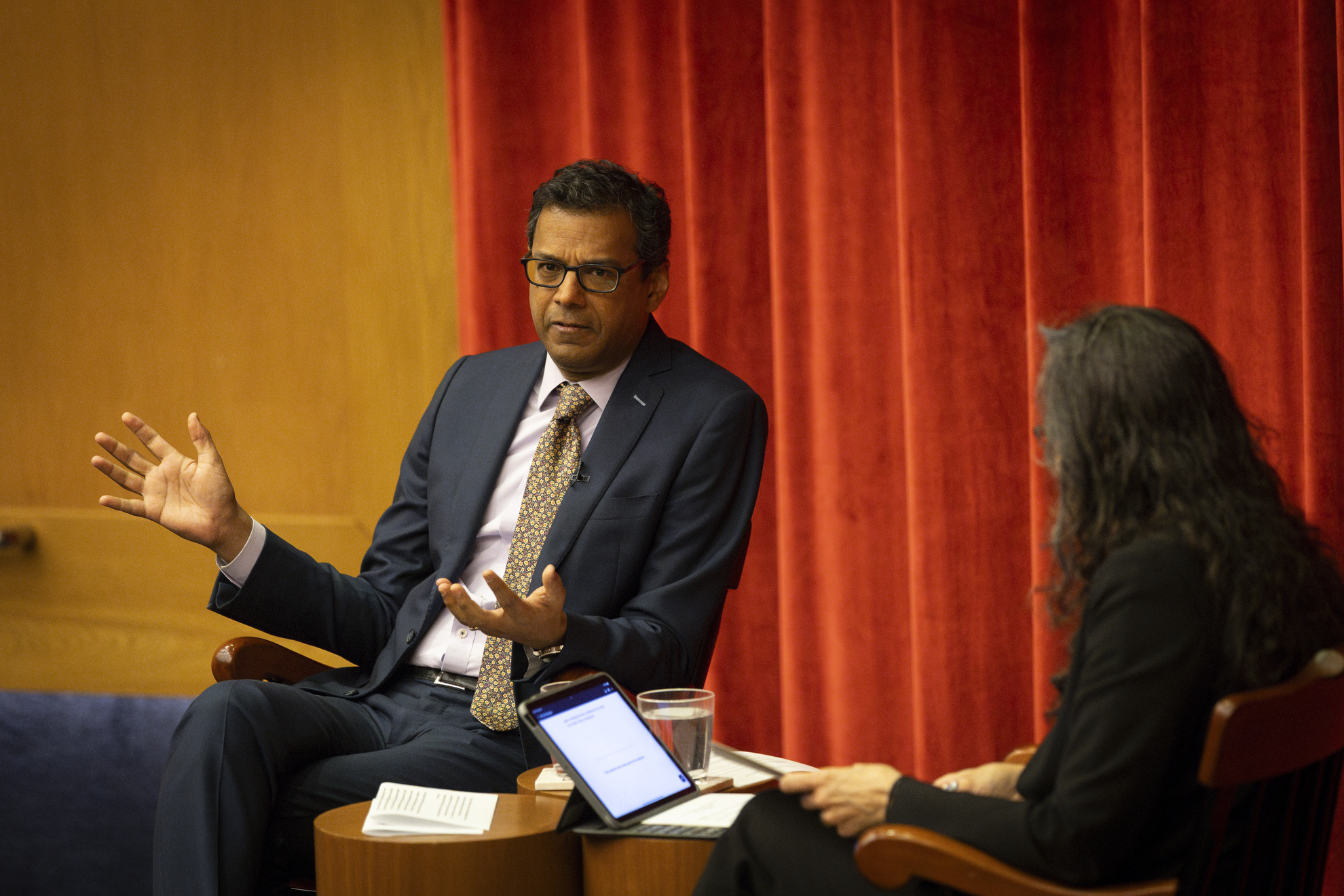Medical research oversight is crucial for ensuring patient safety during clinical trials and research studies. With the rising complexities of modern medical innovations, maintaining ethical standards and strict oversight through bodies like Institutional Review Boards (IRBs) has never been more vital. These organizations play a pivotal role in safeguarding the rights and welfare of participants, particularly in light of challenges posed by funding cuts that can jeopardize critical research efforts. The impact of federal funding for medical studies directly influences how effectively we can protect those involved in research, making it imperative to understand the ethical frameworks that guide these operations. As we delve into the nuances of medical research oversight, we uncover the intricate balance between innovation and the necessary safeguards that uphold patient safety in research.
When we discuss the oversight of medical studies, alternative terms such as research ethics and regulatory compliance come into play. This essential framework serves to protect individuals participating in clinical trials, ensuring their rights and safety are prioritized. The role of oversight bodies, like the Institutional Review Boards, cannot be understated, especially amidst fears regarding the effects of financial restrictions on research initiatives. As we explore the implications of reduced funding on the research landscape, it becomes increasingly clear that the integrity of patient protection mechanisms hinges on the continuous support and adherence to these ethical standards. Consequently, understanding the facets of governance in medical research is vital as we aim to safeguard public trust and maintain the progress of scientific discovery.
The Importance of Medical Research Oversight
Medical research oversight is a crucial element in safeguarding the welfare and rights of patients who participate in clinical studies. Oversight primarily occurs through Institutional Review Boards (IRBs) that evaluate research proposals to ensure ethical standards are upheld. They are tasked with assessing various aspects such as study design, informed consent processes, and risk management, which directly contribute to patient safety in research. Proper oversight not only shields participants from potential harm but also fosters greater public trust in research initiatives.
The increasing complexity of medical research, particularly multi-site studies requiring collaboration across various institutions, heightens the need for meticulous oversight. Programs such as SMART IRB streamline this process by allowing a single IRB to review studies on behalf of multiple sites. This efficient system brings consistency and expedites approvals but hinges on stable funding. When interruptions occur, such as those caused by funding cuts, the resulting halts can eliminate the safeguards designed to protect participants, leading to potential risks in patient safety.
Impact of Funding Cuts on Patient Safety
Recent federal funding cuts have profound implications for patient safety in ongoing medical research. When research funding is frozen or eliminated, institutions are often forced to stop work on numerous projects. This not only affects the study’s integrity but can also lead to disrupted patient care, where ongoing trials may need to cease recruitment or halt treatments essential for participants. A cancellation of grants can create an environment where research ethics and oversight are compromised, placing participants at risk.
Furthermore, cutting funds undermines the support system necessary for maintaining rigorous oversight by IRBs. As operational budgets shrink, the ability of IRBs to perform in-depth reviews and monitor compliance diminishes. This can ultimately lead to less rigorous ethical scrutiny of studies, resulting in heightened risks to patient safety. The ripple effect extends beyond immediate research outcomes, fostering public skepticism about the reliability of clinical trials and the protections in place for those who volunteer to participate.
The Role of IRBs in Clinical Trials
Institutional Review Boards (IRBs) serve as a cornerstone in the ethical conduct of clinical trials. These committees are essential for protecting the rights and welfare of human subjects in research. By reviewing study protocols, IRBs ensure that all ethical standards are adhered to and that participant safety is prioritized. They systematically assess the risk-to-benefit ratio of studies, ensuring participants are fully informed about the study and their rights before consenting to participate.
In the context of ever-increasing complexities in research design and regulatory demands, the role of IRBs becomes even more vital. The introduction of single IRBs (sIRBs) for multi-site studies represents a significant advancement, simplifying oversight while enhancing collaboration across institutions. However, the role of IRBs is contingent upon consistent funding; any interruption can undermine their ability to oversee clinical trials effectively, leading to potential ethical breaches and compromised patient safety.
Historical Context of Research Ethics
The establishment of robust research ethics and oversight mechanisms can be traced back to historical violations that have profoundly impacted public trust in medical research. Notable cases, such as the Tuskegee Syphilis Study and the experiments conducted during World War II, underscored the necessity of stringent oversight to protect individuals participating in research. These events catalyzed the creation of regulations aimed at ensuring informed consent and ethical treatment of all research subjects.
As a result, a framework was developed to prevent future abuses, emphasizing the importance of transparency and participant rights in medical research. This history highlights the critical need for ongoing vigilance and adaptation of oversight mechanisms like IRBs to prevent ethical lapses and to safeguard public confidence in clinical trials. Without a solid ethical foundation, current and future research endeavors may risk repeating past transgressions, thus jeopardizing patient safety.
Optimizing Patient Participation through Informed Consent
Informed consent is a fundamental principle that governs patient participation in clinical research. It ensures that individuals are fully aware of the study’s purpose, procedures, risks, and benefits before agreeing to participate. Properly structured informed consent processes are essential as they empower participants, allowing them to make educated decisions about their involvement in research. Additionally, ongoing communication is vital to reassess consent as conditions may evolve during the study.
The role of IRBs extends to reviewing and refining informed consent documentation to ensure clarity and comprehensiveness. Enhancements in consent processes are not only ethical requirements but also critical for promoting patient safety in research. With the increasing complexity of studies and regulatory mandates, ensuring that participants truly understand what they are consenting to is more important than ever, reinforcing the ethical standards set by prior research failures.
The Future of Research Ethics Amid Funding Challenges
As research funding continues to fluctuate, the future of research ethics faces significant challenges. Federal funding cuts can hinder the operational capabilities of IRBs and related oversight bodies. This decline threatens to destabilize the systems designed to ensure that ethical conduct is maintained throughout the research lifecycle. Funding constraints may force institutions to prioritize cost savings over participant protections, leading to potential ethical dilemmas that could jeopardize patient safety.
Moreover, the uncertainty surrounding federal funding can cause hesitancy among researchers and institutions to pursue innovative projects. When discussions about ethics and oversight are overshadowed by financial concerns, the core mission of research—which is to safeguard participants and advance medical knowledge—suffers. Thus, maintaining consistent federal funding for medical studies is vital not only for research progress but also for reinforcing the ethical frameworks protecting patients involved in clinical trials.
Mitigating Risks through Collaborative Oversight
Collaborative oversight among multiple institutions is essential for mitigating risks associated with clinical trials. By employing systems like SMART IRB, researchers can streamline the review process, allowing for quicker and more consistent ethical evaluations. This collaboration fosters a culture of accountability across sites, where shared governance focuses on patient safety and adherence to regulatory standards. As networks of hospitals and universities work together, they can collectively enhance the protection of study participants.
The future of medical research depends on strengthening this collaborative approach, especially in light of funding challenges. By pooling resources and expertise, institutions can continue to provide thorough oversight even when faced with financial constraints. This unity not only reinforces patient safety but also fosters broader community trust in the research process, ultimately encouraging public participation in clinical trials and advancing medical discoveries for the benefit of all.
Reinforcing Public Trust in Research
Public trust in medical research is indispensable for fostering participation in clinical trials. Historical violations and recent funding challenges threaten to erode this trust, making it imperative for the research community to engage transparently with the public. By actively communicating the measures taken to protect patient rights and ensure ethical oversight, researchers can rebuild confidence. Involving community stakeholders in discussions about research can also help demystify processes and highlight the safeguards in place.
Strengthening public trust is not just a matter of ethics—it also has practical implications for research success. A population that trusts clinical trials is more likely to participate, thereby enhancing the diversity and applicability of study results. Researchers and institutions must thus prioritize transparency and community engagement to fortify this trust, ensuring that patient safety remains at the forefront of research practices.
The Role of Federal Funding in Medical Research
Federal funding plays an instrumental role in the advancement of medical research, supporting everything from basic science to large-scale clinical trials. It facilitates the establishment of oversight systems such as IRBs that help safeguard patient rights and ensure adherence to ethical standards. Without robust federal funding, many research initiatives may face disruptions, leading to delays in critical studies and hindering potential medical breakthroughs that represent hope for patients and communities.
Moreover, the allocation of federal funding is often tied to specific research goals, such as improving patient safety or addressing pressing public health issues. When funding is cut, these initiatives are put at risk, potentially leaving patients without access to innovative therapies or treatments. As policymakers consider future budgets, the implications of funding decisions on patient safety and ethical oversight must be central to discussions about the value and impact of medical research.
Frequently Asked Questions
How does medical research oversight ensure patient safety in research?
Medical research oversight, particularly through institutional review boards (IRBs), is crucial for ensuring patient safety in research. These committees rigorously review research proposals to assess potential risks and ensure that participants’ rights are protected. By monitoring study designs, consent processes, and adverse event reporting, IRBs help maintain ethical standards in medical research, safeguarding the welfare of participants.
What negative impact do funding cuts have on medical research oversight and patient safety?
Funding cuts can severely disrupt medical research oversight by limiting the resources available to IRBs and other oversight bodies. This can lead to delays in studies, increased risks to patient safety, and a reduction in the capacity to monitor compliance with ethical standards. As a result, the integrity of patient protections in medical research may be compromised, potentially affecting those who participate in clinical trials.
What is the role of IRBs in clinical trials regarding research ethics and oversight?
IRBs play a fundamental role in clinical trials by reviewing and approving research protocols to ensure ethical standards are met. They assess the potential risks and benefits of research, oversee informed consent procedures, and monitor the safety of participants throughout the study. This oversight is essential for maintaining research ethics and ensuring that patient safety remains a top priority.
How does federal funding for medical studies relate to patient safety in research?
Federal funding for medical studies is vital for supporting infrastructure that enhances patient safety in research. It provides the necessary resources for IRBs to operate effectively, ensuring that ethical oversight is maintained. Without sufficient funding, the oversight mechanisms critical for protecting research participants may be weakened, potentially jeopardizing their safety and the validity of the research conducted.
What are the consequences of disrupted medical research oversight on patient safety?
Disruptions in medical research oversight can lead to significant consequences for patient safety, including delayed studies, inadequate monitoring of participant welfare, and the potential for ethical violations. As the oversight framework becomes less robust due to financial constraints, trust in the research process may erode, ultimately affecting the willingness of individuals to participate in clinical trials.
| Key Points | Details |
|---|---|
| Funding Freeze Impact | The Trump administration’s freeze of over $2 billion in federal research grants has disrupted medical research oversight efforts. |
| Role of IRBs | Institutional Review Boards (IRBs) ensure the safety, rights, and welfare of research participants, overseeing compliance with regulations. |
| Historical Context | Past medical abuses, including the Tuskegee study, highlight the importance of rigorous oversight and informed consent. |
| Collaborative Research | SMART IRB facilitates multi-site research, allowing faster collaboration and oversight among multiple institutions. |
| Consequences of Delays | Current funding cuts risk halting ongoing studies, which can harm patients and reinforce public skepticism toward research. |
| Future Risks | Continuing the essential work to support and monitor research is deemed critical for the health and safety of individuals. |
Summary
Medical research oversight is crucial for ensuring patient safety and ethical standards in clinical studies. The recent funding freeze disrupts this oversight, risking patient welfare and public trust in medical research. As institutions combat these challenges, ongoing commitment to ethical research practices must remain a priority for the health and safety of individuals involved in clinical trials.




